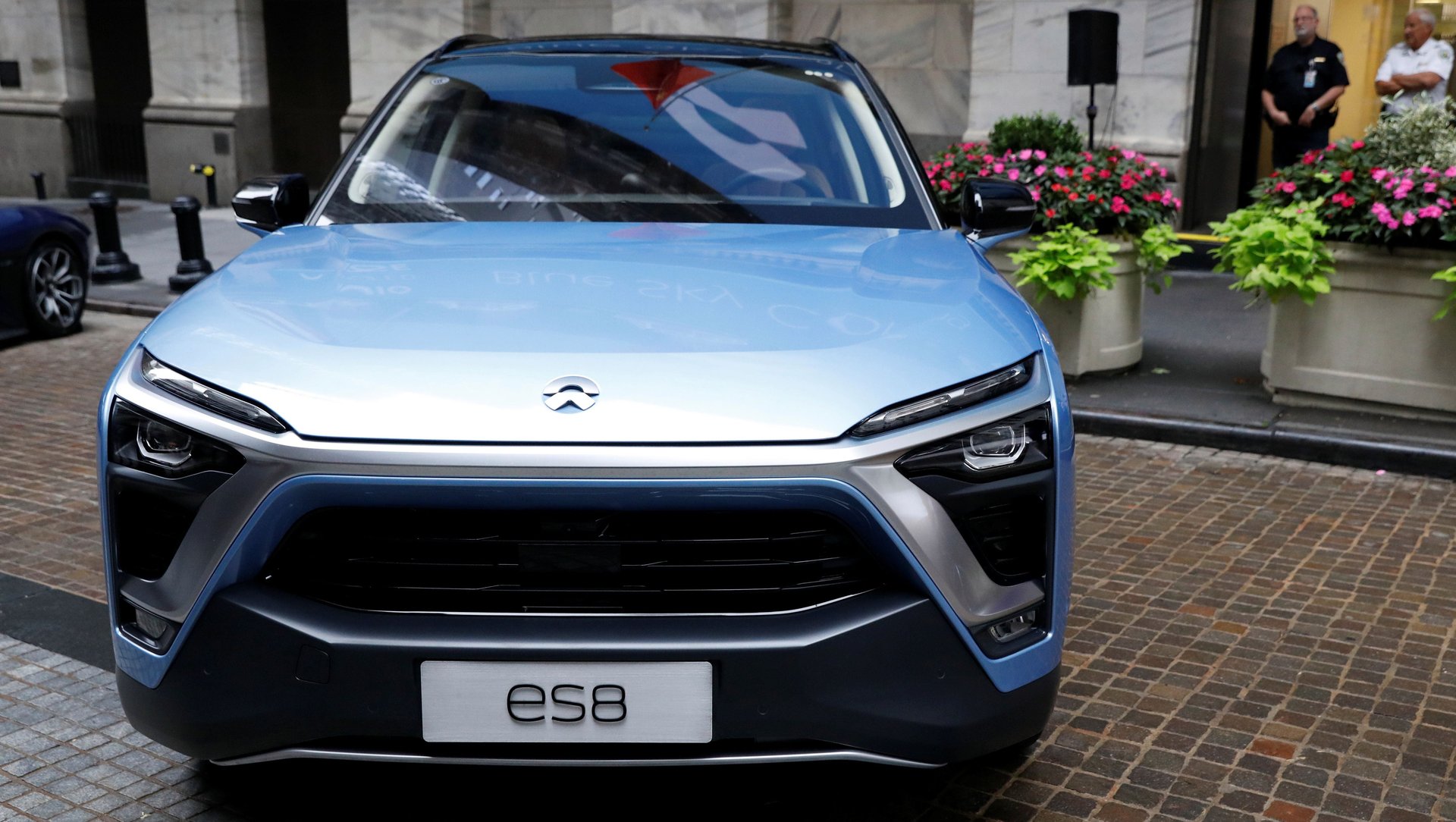Tesla’s China rival has dropped plans to build its own factory
Last year, NIO looked to be the only China’s electric-car startup capable of catching up with Tesla on sales in China. But now, while Tesla’s building its first overseas Gigafactory in Shanghai, NIO’s home base, the Chinese carmaker just announced it’s abandoning the idea of building its own factory there.


Last year, NIO looked to be the only China’s electric-car startup capable of catching up with Tesla on sales in China. But now, while Tesla’s building its first overseas Gigafactory in Shanghai, NIO’s home base, the Chinese carmaker just announced it’s abandoning the idea of building its own factory there.
The five-year-old electric vehicle (EV) startup reported its first full-year earnings on March 6 after going public last year. While NIO hit a major milestone in 2018 by delivering more than 11,000 of its flagship battery-powered SUVs, the ES8, and earning $720 million in revenues, its net loss doubled from the year before to 9.6 billion yuan (1.4 billion) in 2018. The company also said it expects deliveries to slow in the first quarter of the year.
As recently as August, NIO had said it hoped to complete the Shanghai manufacturing facility in 2020. Today’s announcement comes as rules went into effect this year that make it very hard for all but the biggest firms to set up new car factories in China, especially for fossil-fuel cars, but even for EVs.
Without a factory of its own, NIO delivers its cars under a manufacturing arrangement with state-owned JAC Motors, headquartered in eastern China’s Anhui province. NIO’s approach is one adopted by several new players, but only recently given an official endorsement by the government.
NIO explained today that its arrangement with JAC Motors “will give it capacity and flexibility to support its market penetration and growth plans for the next two to three years.” The firm’s chief financial officer Louis Hsieh said on an earnings call that joint-venture efforts are “endorsed and perceived as an innovative manufacturing model in China.”
NIO’s manufacturing strategy could allow it to focus on other things such as building out its battery-swapping stations and creating a fan base with its fancy, member-only sales centers located in popular areas of big cities such as Beijing, Shanghai, and Guangzhou, explained Angus Chan, a Shanghai-based auto analyst with Bocom International.
But that will also mean it will continue paying commission fees to JAC Motors. According to NIO’s IPO filing last August, it had paid JAC Motors a total of 100 million yuan ($15 million) as of June, two-thirds of which went to compensate the state-owned firm’s operating losses in the second quarter of 2018. NIO’s agreed to compensate the plant’s operating losses until April 2021. The rest went to manufacturing and processing fees, as well as “potential future losses” in the third quarter of 2018. An updated breakdown hasn’t been released yet.
NIO accounts for only a small fraction of the total battery electric vehicles (BEVs) sold in the country—almost a million (link in Chinese) last year. But it represents the direction that China is steering the EV sector, which saw a slew of new players join the industry as the government offered attractive subsidies. Now, as declining car sales put pressure on the automobile sector as a whole, China’s been withdrawing subsidies, keeping a tight rein on manufacturing licenses.
A Quartz investigation found that there are around 84 carmakers (paywall)—mostly state-owned firms and their branches—who are helping EV startups like NIO to make passenger cars.
Official encouragement of such domestic joint-ventures come as China has eased rules requiring JVs from foreign car makers, beginning with EV companies, making it possible for Tesla to set up the first wholly-owned car plant by a foreign car maker—a policy change that NIO’s IPO filing alluded to last year as a potential risk to its business.
Looking for more in-depth coverage? Sign up to become a member and read more in-depth coverage of China’s electric-car boom in our field guide.